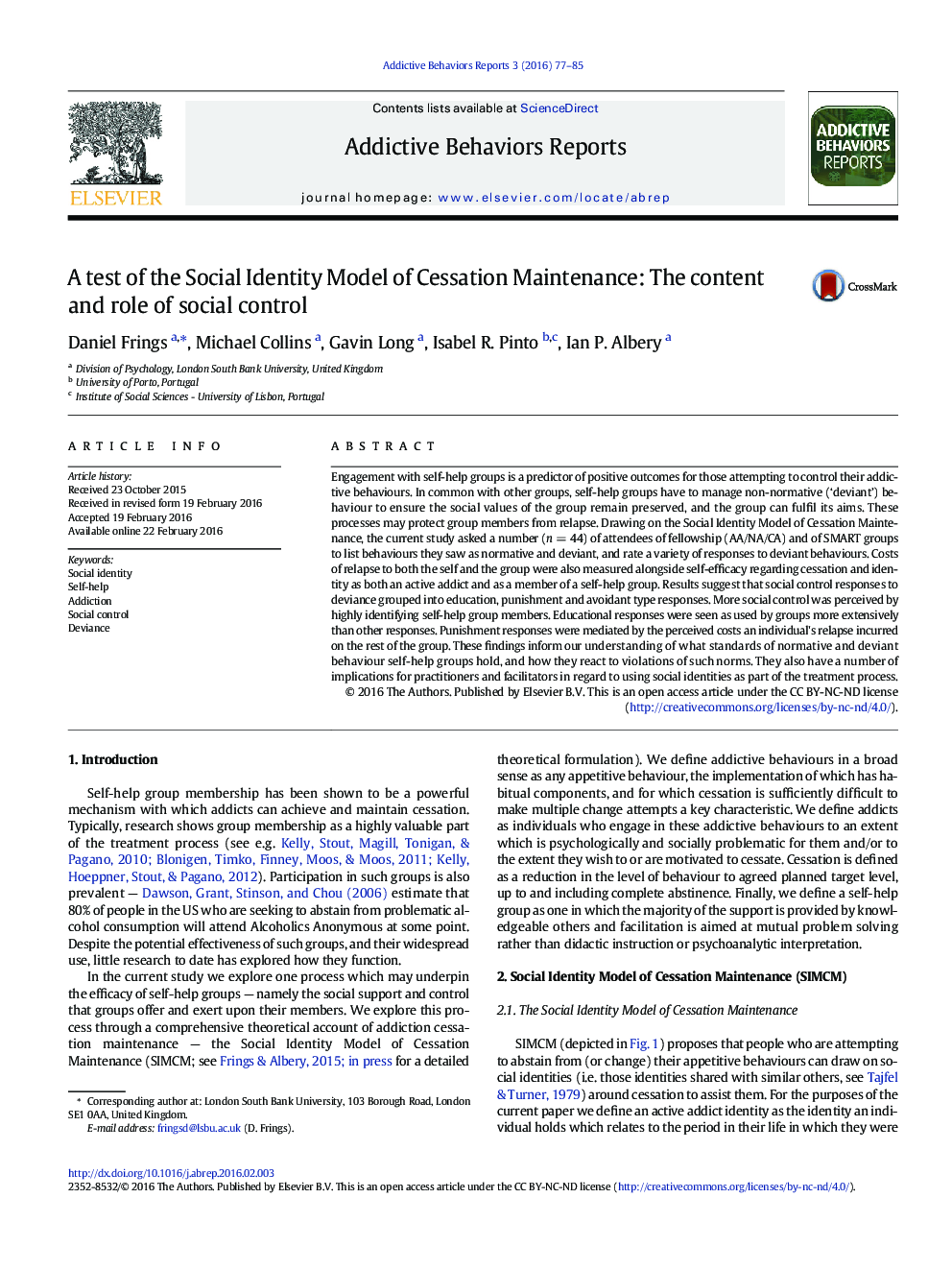| کد مقاله | کد نشریه | سال انتشار | مقاله انگلیسی | نسخه تمام متن |
|---|---|---|---|---|
| 900735 | 1472540 | 2016 | 9 صفحه PDF | دانلود رایگان |
• Self-help groups are a prevalent and often effective aid to addiction cessation.
• Social Identity Model of Cessation Maintenance describes related social processes.
• Current study explored such mechanisms in instances members violated group norms.
• Social control mechanisms comprised education, punishment and avoidant responses.
• Punishment responses influenced by identity, and mediated by actions cost to group
Engagement with self-help groups is a predictor of positive outcomes for those attempting to control their addictive behaviours. In common with other groups, self-help groups have to manage non-normative (‘deviant’) behaviour to ensure the social values of the group remain preserved, and the group can fulfil its aims. These processes may protect group members from relapse. Drawing on the Social Identity Model of Cessation Maintenance, the current study asked a number (n = 44) of attendees of fellowship (AA/NA/CA) and of SMART groups to list behaviours they saw as normative and deviant, and rate a variety of responses to deviant behaviours. Costs of relapse to both the self and the group were also measured alongside self-efficacy regarding cessation and identity as both an active addict and as a member of a self-help group. Results suggest that social control responses to deviance grouped into education, punishment and avoidant type responses. More social control was perceived by highly identifying self-help group members. Educational responses were seen as used by groups more extensively than other responses. Punishment responses were mediated by the perceived costs an individual's relapse incurred on the rest of the group. These findings inform our understanding of what standards of normative and deviant behaviour self-help groups hold, and how they react to violations of such norms. They also have a number of implications for practitioners and facilitators in regard to using social identities as part of the treatment process.
Journal: Addictive Behaviors Reports - Volume 3, June 2016, Pages 77–85
